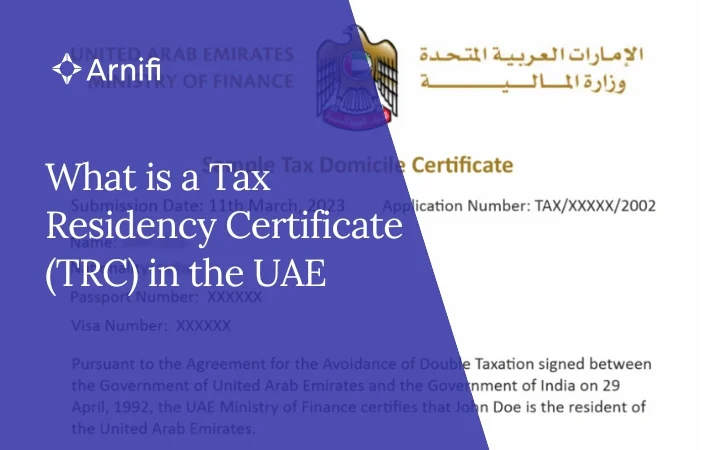The Truth About Misconceptions on Import Tax Exemptions
by Manu Midha Dec 26, 2023  11 MIN READ
11 MIN READ
If you are an importer, exporter, or supply chain manager working in Dubai, you must be aware of the import tax policies and their impact on your business. From understanding the legal framework for import taxes to analyzing their effect on profitability. Staying informed about policy changes is critical for businesses operating in the region is also important. In this blog post, we will provide a comprehensive overview of the import tax policy changes that have taken place recently and examine their effects on imported goods prices.
We will also explore common misconceptions around import tax exemptions and how these changes can affect business profitability. Additionally, we will delve into the influence of import tax on Dubai’s economic growth and predict future trends in its policies. If you want to stay ahead of the game and make informed decisions for your business, read on to find out everything you need to know about import tax policy changes in Dubai.
Understanding Import Tax Policy Changes
Import tax policy adjustments play a pivotal role in global trade, necessitating careful comprehension of the legal framework. These alterations significantly impact the supply chain and business environment, reflecting the evolving global economy. Moreover, import tax policies directly influence small business owners, shipping costs, and raw materials that are vital for production. Understanding these changes is crucial for businesses to effectively navigate the dynamic commercial landscape and capitalize on emerging opportunities, especially in the wake of recent global events such as COVID-19.
Recent Changes in Import Tax Policies
Recent modifications in import tax policies have implications for specific products or areas. Understanding these policies is crucial for smooth customs clearance, as they can impact duty rates, customs declaration, and documentation. The comprehension of recent changes is vital for economic growth and may also influence tariff, audit, and taxation regulations. These changes reflect the evolving global economy. It emphasize the significance of staying informed about United States, United Arab Emirates, or European Union tax regulations.
Legal Framework for Import Tax in Dubai
The legal framework for import tax in Dubai differs significantly from that of other countries, making it essential for importers and businesses to understand. It involves careful consideration of customs duties and is influenced by trade agreements, tax rates, and customs authorities. These regulations play a significant role in the competitiveness of import goods, impacting the supply chain and business environment. Understanding the legal framework for import tax in Dubai is crucial for navigating customs clearance and ensuring compliance with duty rates and documentation requirements.
ALSO READ: VAT Registration process for anew businesses in UAE
Impact of Import Tax Policy Changes on Imported Goods Prices
Import tax policy changes have a direct impact on the pricing of imported goods. It’s crucial to understand these changes for effective management of importation costs. Import tax policy alterations influence import VAT, customs duties, and excise tax, thereby affecting the pricing logistics and shipping costs. Recent import tax policy modifications can significantly alter the pricing basis of importation. This understanding is vital for businesses involved in international trade, as it can directly impact the profitability and competitiveness of their imported goods.
How Price of Imported Goods Fluctuates with Tax Changes
Understanding how import tax changes impact the pricing of imported goods is crucial for businesses involved in international trade. Fluctuations in imported goods pricing are directly influenced by changes in import tax policies. These policy changes can often lead to misunderstandings regarding the actual costs of importing goods, requiring careful planning and customs clearance. Moreover, recent import tax policy adjustments may provide concessions for specific products or regions, impacting the overall pricing dynamics of import shipments. It’s essential for importers to stay informed about these fluctuations to manage their importation costs effectively.
Case Study: Impact on Imported Vehicles
Recent import tax policy changes have specific implications for the importation of vehicles. Changes in import tax policies have led to misunderstandings around import duties. The impact on imported vehicles due to tax changes varies based on specific areas or products. Moreover, recent import tax policy changes may offer tax exemption for specific products or areas. A comprehensive guide is essential to understand the impact on imported vehicles. Understanding the evolving legal framework and commercial invoice requirements related to the import of vehicles is crucial for importers seeking exemptions and concessions.
Examining Import Tax Exemptions Misconceptions
Import tax exemptions often result in widespread misconceptions among importers and business owners. This leads to misunderstandings about eligible goods and pricing. Debunking these myths is essential for avoiding customs clearance issues and ensuring business profitability. Understanding the frequently misunderstood import tax exemption policies is crucial, as these misconceptions can impact taxation requirements. By unraveling the truth behind tax-free zones and debunking myths around eligible goods, importers can navigate the complexities of import tax exemptions more effectively.
Unraveling the Truth Behind Tax-Free Zones
Understanding tax-free zones is pivotal for importers and businesses aiming for tax exemption. Recent import tax policy changes can impact tax exemption in specific areas, such as tax-free zones. These zones play a crucial role in import tax exemption and business profitability. Misconceptions around tax-free zones can significantly impact importers, business registration, and freight logistics. Navigating tax-free zones requires careful consideration of import tax policies, shipping, and documentation, ensuring compliance and maximizing benefits.
Debunking Myths around Goods Eligible for Import Tax Exemptions
Understanding the eligibility of goods for import tax exemptions is vital for businesses. Misconceptions can significantly impact profitability, particularly with recent policy changes. Documentation requirements play a crucial role, necessitating careful consideration for customs duties. Importers must navigate these misconceptions to avoid taxation misunderstandings and ensure compliance. The recent shifts in import tax policies have directly influenced the eligibility criteria for tax exemption. It requires importers to stay abreast of these changes to make informed decisions.
Influence of Import Tax Policy Changes on Business Profitability
Import tax policy changes directly impact business profitability and competitiveness. It’s crucial for business owners to understand their influence, especially regarding tax exemption and VAT. These changes play a significant role in the competitiveness of import goods, involving customs clearance, shipping, and VAT considerations. Recognizing the implications of the recent import tax policy modifications is essential for businesses to adapt their strategies and maintain profitability. By comprehending these influences, businesses can navigate the evolving landscape of import tax policies and make informed decisions to optimize their profitability.
Scenario Analysis: Import Tax Impact on Businesses with Global Supply Chains
Long-term consequences of import taxes on global supply chain logistics can significantly influence competitiveness. Import tax reforms directly impact the pricing and importation of raw materials. It requires businesses to adapt their supply chain strategies. Understanding these implications is crucial for maintaining cost efficiency and a competitive edge in the market. Analyzing the impact of import tax changes on global supply chains involves careful consideration of customs duties, commercial invoices, and shipment regulations. These factors, combined with recent policy shifts, create a complex landscape for businesses with global supply chains.
Dissecting Long-term Effects of Import Tax on Profitability
Import tax plays a significant role in impacting business profitability, especially in specific regions. The rates of import tax directly influence the economic growth of small businesses and their competitiveness. It’s essential to grasp the common misconceptions surrounding import tax duties and tariffs to make informed business decisions. Understanding the long-term effects of import tax is crucial for business owners to navigate the complexities of international trade effectively. Import tax reforms can have a profound impact on various aspects, including customs clearance, shipping, and VAT, influencing overall profitability.
Policy Shifts Affecting Import Tax Rates
The recent adjustments in import tax rates, influenced by policy shifts, can significantly impact specific products. Navigating these changes requires careful planning to optimize the commercial invoice process. Understanding how policy shifts influence import tax rates is crucial for businesses importing goods to or from the United Arab Emirates. Adapting to these changes is essential, especially considering the impact of COVID on shipment and trade dynamics. The EU’s trade center has also been closely monitoring these policy shifts since October to evaluate their influence on global trade.
How Recent Policy Changes are Influencing Import Tax Rates
Recent policy changes have a direct impact on import tax rates, influencing economic growth and industry competitiveness. By understanding the correlation between economic growth and import tax policy reforms, it becomes possible to predict long-term import tax trends. Import tax rates play a significant role in determining the competitiveness of specific industries, affecting their ability to thrive in the market. The careful analysis of recent policy changes provides insights into the future trends of import tax rates, thereby guiding strategic business decisions.
Evaluating the Effect of Import Tax on Dubai’s Economic Growth
The impact of import tax exemptions on the economic growth of Dubai is significant. Import tax rates hold substantial influence over trade agreements and economic development in Dubai, shaping its global trade relationships. By understanding how import tax concessions affect the economic landscape, Dubai can strategically position itself in the global market. The correlation between import tax policies and economic growth is crucial for predicting future trends and making informed decisions.
Correlation between Import Tax and Economic Growth
Import tax rates play a significant role in shaping economic competitiveness and influencing the business environment. By analyzing the relationship between import tax rates and economic growth, we can gain insights into the impact on specific industries’ global economic growth. Import tax exemptions also contribute to this correlation by influencing the overall business environment and economic growth. Understanding the role of import tax policy in these dynamics is crucial for businesses operating in the United States, EU, United Arab Emirates, and other global centers of trade.
Predicting Future Trends of Import Tax in Dubai
Analyzing the factors influencing future import tax trends in Dubai involves assessing global economic conditions, trade agreements, and policy shifts. Import tax rates play a crucial role in determining Dubai’s competitiveness in the international market. As import tax policies evolve, importers in Dubai may experience fluctuations in freight costs and overall operational expenses, impacting their bottom line. This predictive analysis requires a comprehensive understanding of the economic landscape, global trade dynamics, and the potential impact of external factors such as the United States, COVID-19, and commercial invoices.
Is Dubai Likely to Shift its Import Tax Policy in the Near Future?
Examining the potential for import tax policy shifts in Dubai and their implications. Predicting changes and their impact on specific business sectors. The role of import tax documentation in shaping Dubai’s import tax policy.
Prospects and Implications of Potential Policy Shifts
Potential import tax policy shifts in Dubai hold significant prospects for reshaping the taxation environment. The role of import tax audit cannot be underestimated in influencing these potential shifts. It is essential to predict the impact of import tax policy concessions on both importers and business registration processes. These policy changes can have lasting implications for the United Arab Emirates’ global competitiveness and freight costs, especially in the context of the EU, United States, and the commercial invoice centre.
ALSO READ: Taxes in UAE
Conclusion
To stay ahead of the curve and ensure compliance with import tax policies, businesses need to stay informed about the latest changes. Understanding the impact of these policy changes on imported goods prices is crucial for budgeting and pricing strategies. It’s important to separate fact from fiction when it comes to import tax exemptions and tax-free zones. Additionally, businesses with global supply chains must analyze the long-term effects of import tax on profitability. As Dubai’s import tax rates continue to shift, it’s essential to evaluate their influence on the city’s economic growth. While predicting future trends can be challenging, it is important to be prepared for potential policy shifts. Stay updated and adapt your business strategies accordingly to navigate the ever-evolving import tax landscape.
About Arnifi
Arnifi is digital first Corporate service provider helping companies enter the Middle East region, starting with UAE and Saudi Arabia markets. Founded and backed by professionals from Amazon, Souq and other large companies operating in KSA – the team understands what it takes to succeed as a startup in both UAE and Saudi Arabian markets, apart from going through the setup process multiple times.
Arnifi will provide a truly digital experience to entry and scale up of companies both UAE and Saudi Arabia. The Arnifi promise is simple, yet revolutionary, use technology and a great team to provide transparency, efficiency and great customer experience in the whole process.
Check out at – www.Arnifi.com for more details.
Top UAE Packages

Related Articles
Top UAE Packages



